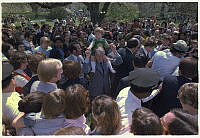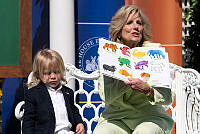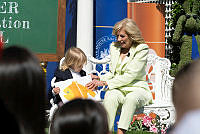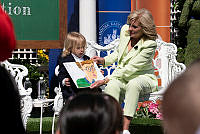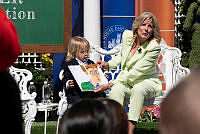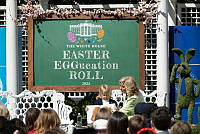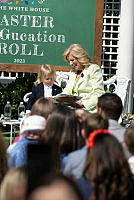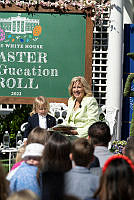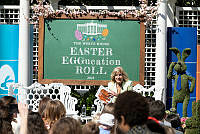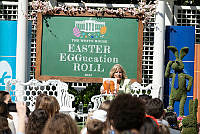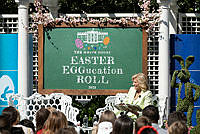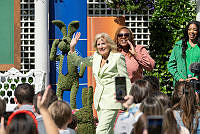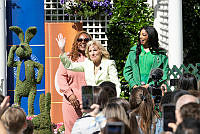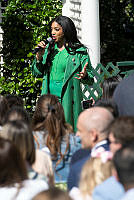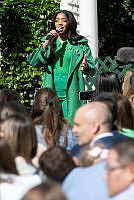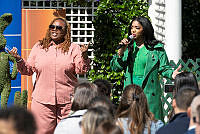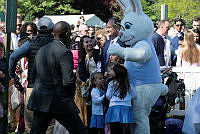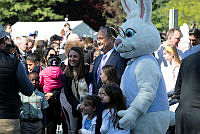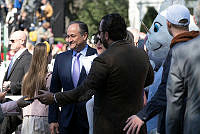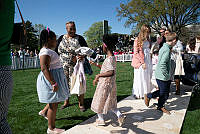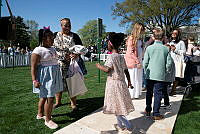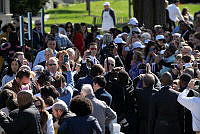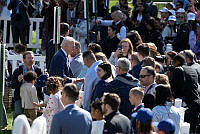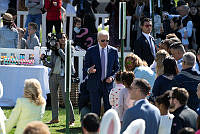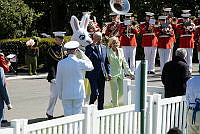Easter Egg Roll: Years Without an Easter Monday
Copyright © White House Historical Association. All rights reserved under international copyright conventions. No part of this article may be reproduced or utilized in any form or by any means, electronic or mechanical, including photocopying, recording, or by any information storage and retrieval system, without permission in writing from the publisher. Requests for reprint permissions should be addressed to books@whha.org
The egg roll holds such an important place in White House history that no president wants to be known for canceling it. World War I and food rationing stopped the event from being hosted at the White House. In 1942, egg rollers were sent back to the Capitol grounds, the place from which they had been ousted 66 years before. World War II prevented the White House from hosting the event from 1942 to 1945.
President Harry Truman did not host an egg roll. During 1946, 1947, and 1948, conservation efforts caused him to reluctantly cancel the affair. Then from 1949 through 1952, his renovation of the White House made the South Lawn a construction zone. President Dwight D. Eisenhower revived the tradition after its eleven-year hiatus, but a string of his successors could not be at the White House on Easter Monday to greet their egg roll visitors. President Gerald Ford reinstated the presidential appearance in 1976—the first since Eisenhower had acted as host in 1960.
In 1959, 1964, 1978, 1984, and 2001, the egg roll was cancelled because of inclement weather.
Due to the coronavirus outbreak, President Donald Trump and First Lady Melania Trump elected to cancel the 2020 Easter Egg Roll, as did President Joe Biden and First Lady Jill Biden in 2021.

The Washington Times, April 1, 1918













